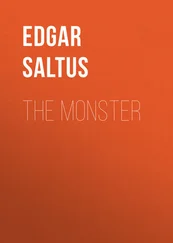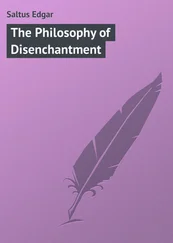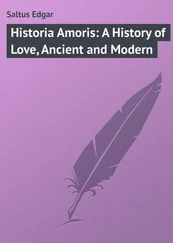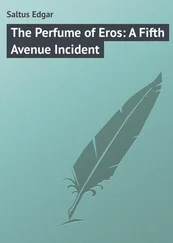Edgar Saltus - Mary Magdalen - A Chronicle
Здесь есть возможность читать онлайн «Edgar Saltus - Mary Magdalen - A Chronicle» — ознакомительный отрывок электронной книги совершенно бесплатно, а после прочтения отрывка купить полную версию. В некоторых случаях можно слушать аудио, скачать через торрент в формате fb2 и присутствует краткое содержание. Жанр: foreign_prose, на английском языке. Описание произведения, (предисловие) а так же отзывы посетителей доступны на портале библиотеки ЛибКат.
- Название:Mary Magdalen: A Chronicle
- Автор:
- Жанр:
- Год:неизвестен
- ISBN:нет данных
- Рейтинг книги:4 / 5. Голосов: 1
-
Избранное:Добавить в избранное
- Отзывы:
-
Ваша оценка:
- 80
- 1
- 2
- 3
- 4
- 5
Mary Magdalen: A Chronicle: краткое содержание, описание и аннотация
Предлагаем к чтению аннотацию, описание, краткое содержание или предисловие (зависит от того, что написал сам автор книги «Mary Magdalen: A Chronicle»). Если вы не нашли необходимую информацию о книге — напишите в комментариях, мы постараемся отыскать её.
Mary Magdalen: A Chronicle — читать онлайн ознакомительный отрывок
Ниже представлен текст книги, разбитый по страницам. Система сохранения места последней прочитанной страницы, позволяет с удобством читать онлайн бесплатно книгу «Mary Magdalen: A Chronicle», без необходимости каждый раз заново искать на чём Вы остановились. Поставьте закладку, и сможете в любой момент перейти на страницу, на которой закончили чтение.
Интервал:
Закладка:
He put his hand to his face and tried to think – to forget rather, and not to re member; but his ears were charged with rustlings that extended indefinitely and lost themselves in the future; his mind peopled itself with phantoms of the past. Perhaps he dozed a little. When he looked up again the head was no longer there, and he told himself that Herodias had thrown it to the swine.
CHAPTER III
In the distance the white and yellow limestone of the mountains rose. Near by was a laughter of flowers, a tumult of green. Just beyond, in a border of sedge and rushes, a lake lay, a mirror to the sky. In the background were the blue and white terraces of Magdala, and about a speaker were clustered a handful of people, a group of laborers and of fishermen.
He was dressed as a rabbi, but he looked like a seer. In his face was the youth of the world, in his eyes the infinite. As he spoke, his words thrilled and his presence allured. “Repent,” he was saying; “the kingdom of heaven is at hand.” And as the resplendent prophecy continued, you would have said that a bird in his heart had burst into song.
A little to one side, in an attitude of amused contempt, a few of the tetrarch’s courtiers stood; they were dressed in the Roman fashion, and one, Pandera, a captain of the guard, wore a cuirass that glittered as he laughed. He was young and very handsome. He had white teeth, red lips, a fair skin, a dark beard, and, as he happened to be stationed in the provinces, an acquired sneer. Dear old Rome, how vague it was! And as he jested with his comrades he thought of its delights, and wished himself either back again in the haunts he loved, or else, if he must be separated from them, then, instead of vegetating in a tiresome tetrarchy, he felt that it would be pleasant to be far off somewhere, where the uncouth Britons were, a land which it took a year of adventures to reach; on the banks of the Betis, whence the girls came that charmed the lupanars; in Numidia, where the hunting was good; or in Thrace, where there was blood in plenty – anywhere, in fact, save on the borders of the beautiful lake where he happened to be.
It was but the restlessness of youth, perhaps, that disturbed him so, for in Galilee there were oafs as awkward as any that Britannia could show; there was game in abundance; blood, too, was not as infrequent as it might have been; and as for women, there at his side stood one as appetizing as Rome, Spain even, had produced. He turned to her now, and plucked at his dark beard and showed his white teeth; he had caught a phrase of the rabbi in which the latter had mentioned the kingdoms of the earth, and the phrase amused him.
“I like that,” he said. “What does he know about the kingdoms of the earth? Mary, I wager what you will that he has never been two leagues from where he stands. Let’s ask and see.”
But Mary did not seem to hear. She was engrossed in the rabbi, and Pandera had to tug at her sleeve before she consented to return to a life in which he seemingly had a part.
“What do you say?” he asked.
Mary shook her head. She had the air of one whose mind is elsewhere. Into her face a vacancy had come; she seemed incapable of reply; and as the guardsman scrutinized her it occurred to him that she might be on the point of having an attack of that catalepsy to which he knew her to be subject. But immediately she reassured him.
“Come, let us go.”
And, the guardsman at her side, the others in her train, she ascended the little hill on which her castle was, and where the midday meal awaited.
It was a charming residence. Built quadrangularwise, the court held a fountain which was serviceable to those that wished to bathe. The roof was a garden. The interior façade was of teak wood, carved and colored; the frontal was of stone. Seen from the exterior it looked the fortress of some umbrageous prince, but in the courtyard reigned the seduction of a woman in love. From without it menaced, within it soothed.
Her title to it was a matter of doubt. According to Pandera, who at the mess-table at Tiberias had boasted his pos session of her confidence, it was a heritage from her father. Others declared that it had been given her by her earliest lover, an old man who since had passed away. Yet, after all, no one cared. She kept open house; the tetrarch held her in high esteem; she was attached to the person of the tetrarch’s wife; only a little before, the emir of Tadmor had made a circuitous journey to visit her; Vitellius, the governor of the province, had stopped time and again beneath her roof; and – and here was the point – to see her was to acquire a new conception of beauty. Of human flowers she was the most fair.
Yet now, during the meal that followed, Mary, the toast of the tetrarchy, she whose wit and brilliance had been echoed even in Rome, wrapped herself in a mantle of silence. The guardsman jested in vain. To the others she paid as much attention as the sun does to a torch; and when at last Pandera, annoyed, perhaps, at her disregard of a quip of his, attempted to whisper in her ear, she left the room.
The nausea of the hour may have affected her, for presently, as she threw herself on her great couch, her thoughts forsook the present and went back into the past, her childhood returned, and faces that she had loved reappeared and smiled. Her father, for instance, Theudas, who had been satrap of Syria, and her mother, Eucharia, a descendant of former kings.
But of these her memories were slight – they had died when she was still very young – and in their place came her sister, Martha, kind of heart and quick of temper, obdurate, indulgent, and continually perplexed; Simon, Martha’s husband, a Libyan, born in Cyrene, called by many the Leper because of a former whiteness of his skin, a whiteness which had long since vanished, for he was brown as a date; Eleazer, her brother, younger than herself, a delicate boy with blue pathetic eyes; and with them came the delight of Bethany, that lovely village on the oriental slope of the Mount of Olives, where the rich of Jerusalem had their villas, and where her girlhood had been passed.
From the lattice at which she used to sit she could see the wide white road begin its descent to the Jordan, a stretch of almond trees and oleanders; and just beyond, in a woody hollow, a little house in which Sephôrah lived – a woman who came from no one knew where, and to whom Martha had forbidden her to speak.
She could see her still, a gaunt, gray creature, with projecting cheek-bones, a skin of brick, and a low, insinuating voice. The fascination which she had exercised over her partook both of wonder and of fear, for it was rumored that she was a sorceress, and as old as the world. To Mary, who was then barely nubile, and inquisitive as only fanciful children are, she manifested a great affection, enticing her to her dwelling with little cakes that were sweet to the tooth and fabulous tales that stirred the heart: the story of Stratonice and Combabus, for instance, which Mary did not in the least understand, but which seemed to her intensely sad.
“And then what?” she would ask when the tale was done; and the woman would tell her of Ninus and Semiramis, of Sennachereb, of Sardanapalus, Belsarazzur, of Dagon, the fish-god of Philistia, by whom Goliath swore and in whose temple Samson died, or of Sargon, who, placed by his mother in an ark of rushes, was set adrift in the Euphrates, yet, happily discovered by a water-carrier, afterwards became a leader of men.
“Why, that was Moses!” the child would exclaim.
“No, no,” the woman invariably answered,“it was Sargon.”
But that which pleasured Mary more highly even than these tales were the legends of Hither Asia, the wonderlands of Babylon, and particularly the story of the creation, for always the human mind has wished to read the book of God.
Читать дальшеИнтервал:
Закладка:
Похожие книги на «Mary Magdalen: A Chronicle»
Представляем Вашему вниманию похожие книги на «Mary Magdalen: A Chronicle» списком для выбора. Мы отобрали схожую по названию и смыслу литературу в надежде предоставить читателям больше вариантов отыскать новые, интересные, ещё непрочитанные произведения.
Обсуждение, отзывы о книге «Mary Magdalen: A Chronicle» и просто собственные мнения читателей. Оставьте ваши комментарии, напишите, что Вы думаете о произведении, его смысле или главных героях. Укажите что конкретно понравилось, а что нет, и почему Вы так считаете.












